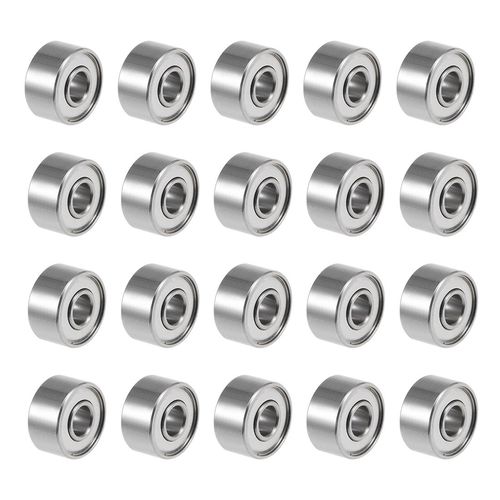Top 5 Things to Know About Ball Bearings Near Me: Suppliers, Types, and Maintenance Tips
Ball bearings are critical components in machinery, reducing friction between moving parts and ensuring efficient operation. Finding reliable "ball bearings near me" ensures quick access to high-quality products, minimizing downtime and maintenance costs. This guide explores key aspects of sourcing, selecting, and maintaining ball bearings locally.
Table of Contents
1. Types of Ball Bearings2. Ball Bearing Suppliers Near Me
3. How to Choose the Right Ball Bearings
4. Ball Bearing Maintenance Tips
5. Industrial Applications of Ball Bearings
1. Types of Ball Bearings
Ball bearings come in various designs for specific applications. Deep groove ball bearings handle radial and axial loads, ideal for electric motors. Angular contact bearings manage combined loads in automotive systems. Thrust ball bearings specialize in axial loads, commonly used in gearboxes. Miniature bearings suit compact devices like drones, while self-aligning bearings compensate for shaft misalignment in industrial machinery. Understanding these types ensures you select bearings that match operational demands.

2. Ball Bearing Suppliers Near Me
Local suppliers offer advantages like faster delivery and personalized support. Verify certifications like ISO 9001 to ensure quality standards. Reputable suppliers provide technical specifications, material options (stainless steel, ceramic), and custom solutions. Compare pricing, lead times, and warranty policies. Establish long-term partnerships to secure bulk discounts and priority service during emergencies.
3. How to Choose the Right Ball Bearings
Evaluate load capacity, speed ratings, and environmental conditions. For high-temperature environments, choose bearings with heat-resistant cages. Corrosion-prone areas require stainless steel or coated bearings. Precision grades (ABEC 1 to 9) affect performance in CNC machines. Consult supplier catalogs or engineers to balance cost and performance. Incorrect selection leads to premature failure and increased operational costs.
4. Ball Bearing Maintenance Tips
Regular lubrication extends bearing life. Use grease compatible with operating temperatures. Avoid over-lubrication, which causes overheating. Monitor noise and vibration to detect misalignment or wear. Clean bearings during maintenance to remove contaminants. Replace seals if damaged to prevent moisture ingress. Implement predictive maintenance schedules using vibration analysis tools.
5. Industrial Applications of Ball Bearings
Ball bearings are vital in automotive, aerospace, and manufacturing sectors. They enable smooth rotation in conveyor systems, robotics, and wind turbines. Medical devices rely on precision bearings for accuracy. Heavy machinery uses large-diameter bearings to support extreme loads. Innovations like hybrid ceramic bearings enhance performance in high-speed applications.
Whether you need ball bearings for automotive repairs, industrial machinery, or DIY projects, understanding these five areas ensures informed decisions. From identifying local suppliers to optimizing maintenance routines, each factor impacts your equipment's efficiency and lifespan. Explore the sections above to address your specific needs and leverage expert insights.
In summary, sourcing "ball bearings near me" involves evaluating types, suppliers, and maintenance strategies. Prioritize quality, compatibility, and supplier reliability to maximize ROI. By applying this knowledge, you can enhance machinery performance and reduce operational disruptions.




 13869596835
13869596835